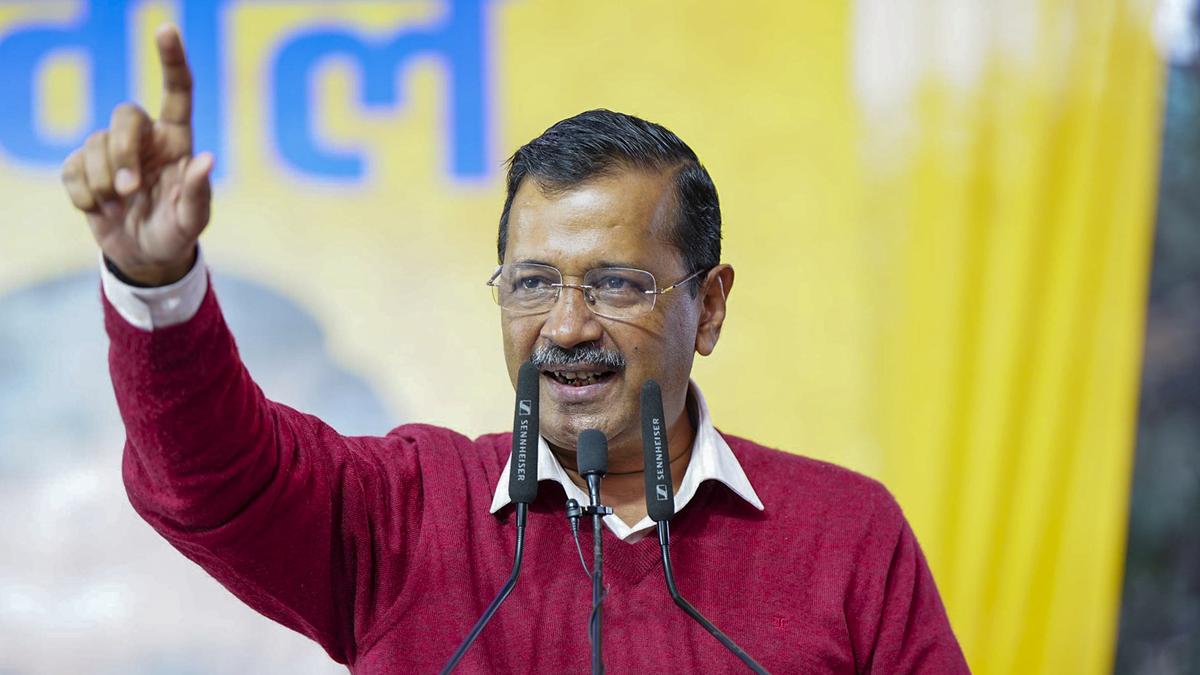AAP national convener Arvind Kejriwal addresses a public meeting in New Delhi.
| Photo Credit: PTI/@AamAadmiParty
The Election Commission of India (ECI) has asked Aam Aadmi Party (AAP) chief Arvind Kejriwal to provide factual evidence to substantiate his allegation that the Yamuna river was being poisoned by the Bharatiya Janata Party (BJP)-ruled neighbouring State of Haryana.
The Commission directed the former Delhi Chief Minister to furnish his response on the complaints, especially on the factual and legal matrix, along with evidentiary support thereof, by 8 p.m. on January 29 so as to enable the election body to examine the matter and take appropriate action.

The ECI’s letter to Mr. Kejriwal follows complaints made by both the BJP and the Congress to it against the AAP leader.
“BJP people in Haryana are mixing poison in the water and sending it to Delhi. If people in Delhi drink this water, many will die. Can anything be more disgusting than this?” Mr. Kejriwal had said.
“The poison that is being mixed in the water cannot even be cleaned in water treatment plants. For the safety of the people of Delhi, the water supply has to be stopped in many areas,” he said in a post on social media platform X.
The ECI asked him to furnish evidence on the claims made before the public that the engineers of the Delhi Jal Board had detected and prevented the poison from mixing into the waters of the Yamuna.
The poll body noted that such allegations had serious ramifications in creating enmity between regional groups, and residents of the neighbouring States, and posed threats to law and order due to actual or perceived shortage or non-availability of water at this time of the year.
“It is presumed that the Government of NCT of Delhi must have officially taken up such a serious and grave issue of public health with the State government of Haryana,” the Commission said.

It also said that various judicial pronouncements, legal provisions, and Provisions of the Model Code of Conduct were incumbent upon all stakeholders to maintain purity in the elections.
The Commission noted that the issue of increased ammonia was being dealt with separately after considering the inputs received from the government of Haryana.
Published – January 28, 2025 09:21 pm IST
